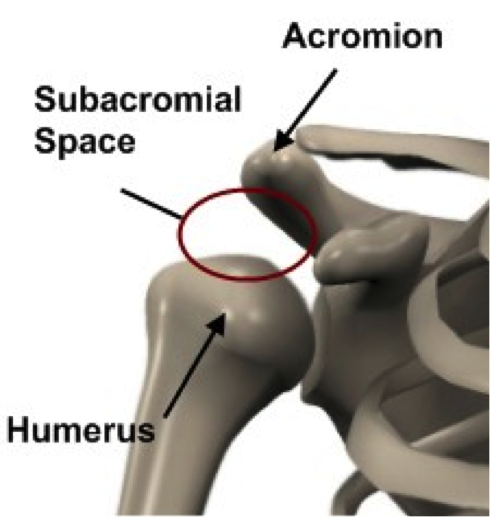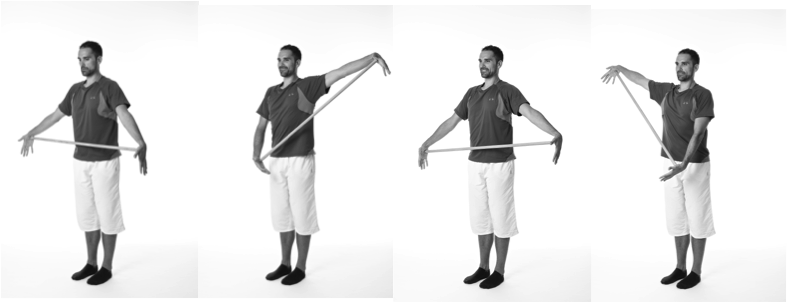Physiotherapy for shoulder impingements
Wed,Jan 14, 2015 at 02:44PM by Douglas Wilson
Shoulder impingement – causes and treatments
Does your shoulder often feel weak, swollen and painful, particularly when you’re performing overhead activities such as tennis, swimming, cricket or even putting things on high shelves? The cause of your discomfort could be a shoulder impingement, so it’s important that you seek an appropriate treatment such as shoulder physiotherapy. There are things you and your physiotherapist can do to alleviate the symptoms.
What is shoulder impingement?
Shoulder impingement is one of the most common shoulder concerns that are presented to physiotherapists. Impingement refers to a trapping of the rotator cuff tendons as they pass through the subacromial space. Impingements can be classed as:
External
// Primary: Abnormalities of bony structures creating the subacromial space
// Secondary: Changes in the position of the acromion due to poor muscle stabilisation and co-contractions between the scapula and chest wall and/or elevation of the head of humerus (the most common presentation)
Internal
// Occurs mainly in throwing sports from the forces placed on the shoulder
When impingement occurs for a prolonged period or occurs under a heavy load, the tendon can become inflamed and the rotator cuff can become weak, swollen and painful, particularly in overhead activities.
What can be done for shoulder impingement?
Impingement or tendinopathy is not a “no pain, no gain” situation. Painful movements or positions and sleeping on the affected side should be avoided. Ice and anti-inflammatory medication should be applied as directed to reduce any inflammation present. In the first 72 hours following the injury or when inflammation is present you should follow the RICE regime (rest, ice, compression, elevation).
Shoulder physiotherapy
Your physiotherapy professional can assist in reducing inflammation with electrotherapeutic modalities and reduce impingement forces by releasing soft tissue and joint mobilisations where applicable. Hands-on physiotherapy such as joint mobilisation and manipulation, massage, trigger point release, dry needling and stretches can assist a speedy recovery as well as improve flexibility and function of the shoulder.
Physiotherapists will often recommend a progressive flexibility and strengthening program of the surrounding muscles to help with your recovery. The physiotherapy exercises will focus on improving the stability of your shoulder blade, as well as posture and rotator cuff function. Also a program of pilates exercises on specialised equipment is a beneficial method that can complement your hands-on physiotherapy treatment.
Useful exercises and stretches for stability
As secondary impingement is the most common impingement to occur, physiotherapy exercises must occur as early as possible to obtain stability of the scapula with arm movements. Below are some useful physio exercises and stretches for stability.
// Lower traps in prone (to begin to create good scapula movement)
// Pectoral stretch (reduce the forward and upward pull of the scapula)
// Pendulum exercises (keep shoulder range without impingement occurring)
Stick Arm Arc exercise for shoulder stabilisation
The purpose of this exercise is used to help teach stabilisation and proper muscular recruitment of the scapula-humeral and scapula-thoracic joints. This exercise if often used decrease the load on the shoulder girdle, whilst maintaining range of motion and strength while the area is healing. It is particularly good for those who are recovering from a shoulder injury or surgery and are unable to move their shoulder through full range of motion without pain.
For more information about the physiotherapy services at Body Organics in Brisbane visit our physiotherapy page.
Nadia Labort practises physiotherapy with Body Organics in Brisbane. She completed her Bachelor of Science (Exercise Science) at the University of Wollongong, which provided a solid foundation for her subsequent Masters of Physiotherapy at the University of Sydney.
 0
0 

